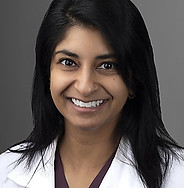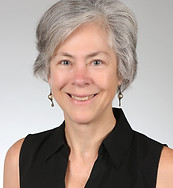
The Rabkin Fellowship in Medical Education was established in 1998 to honor Mitchell T. Rabkin, MD, CEO Emeritus of Beth Israel Hospital. Created by Dr. Charles Hatem, the Fellowship supports the mission of the Carl J. Shapiro Institute for Education and Research and is designed to help Harvard Medical School (HMS) faculty develop the skills and experiences necessary to launch or grow careers in medical education and academic leadership.
The Fellowship is particularly well-suited for physicians whose current or future roles include substantial teaching responsibilities in undergraduate, graduate, or continuing medical education.
Co-Directors

Anita Vanka, MD

Celeste Royce, MD
Fellowship Overview
Directed by Celeste Royce, MD and Anita Vanka, MD, the Rabkin Fellowship is a year-long experience combining protected educational time, weekly seminars, and individualized mentorship. Program highlights include:
-
Weekly Seminars (First Half of Year)
Fellows participate in weekly seminars focused on skill-building, educational innovation, leadership, and peer feedback. Sessions are led by Drs. Royce and Vanka, along with expert educators from across HMS. -
Mentored Scholarly Project
Each Fellow develops a mentored project or research study focused on a significant issue in medical education. Projects often address challenges or innovations in UME, GME, CME, or faculty development. -
Ongoing Mentorship (Second Half of Year)
Fellows continue to receive one-on-one guidance to support the implementation and dissemination of their scholarly work.
To date, the Fellowship has supported over 250 HMS faculty members, many of whom have gone on to become program directors, clerkship leaders, and national voices in medical education.
A Lasting Legacy
Inspired by the success of the Rabkin Fellowship, similar programs have been developed at Mount Auburn Hospital and through the Academy Center for Teaching and Learning at HMS, extending the reach of this innovative curriculum.
These fellowships have not only transformed teaching practices across HMS and its affiliates but also helped establish educational excellence as a recognized pathway to academic promotion.
What Fellows Gain
-
Strengthened teaching and curriculum design skills
-
Experience conducting educational research or completing a mentored project
-
Training in academic leadership and institutional change
-
A connection to a collaborative network of medical educators dedicated to educational innovation
Directors
The fellowship is co-led by Celeste Royce, MD and Anita Vanka, MD. Dr. Royce is the Clerkship Director and Director of Undergraduate Medical Education for the Department of Obstetrics and Gynecology, Beth Israel Deaconess Medical Center and the Course Director for the BRIDGES course at Harvard Medical School. She is an Assistant Professor for Obstetrics, Gynecology, and Reproductive Biology at Harvard Medical School. In addition to being Co-Director of the Rabkin Fellowship, Dr. Vanka is Director of the Practice of Medicine Course at HMS, Associate Director & Advisor of the Hinton Society at HMS and Associate Director of the Principal Clinical Experience at BIDMC. She is an Assistant Professor of Medicine at Harvard Medical School.
Eligibility
The Rabkin Fellowship is open to Harvard Medical School faculty who:
-
Hold a primary appointment at HMS
-
Are actively involved in teaching at HMS or one of its affiliated institution


Selected Seminar Topics
Historical Issues in Medical Education
-
To discuss the history and major movements within American medical education over the past century
-
To consider current challenges facing us today
Adult Learning Theory and its Application to Clinical Teaching
-
To discuss the major assumptions underlying adult learning theories
-
To reflect on how each of us learns best
Fundamentals of Medical Education Research I & II
-
To provide an overview of education research principles and concepts
-
To explore quantitative and qualitative research methods that may be used to evaluate outcomes in medical education
Best Clinical Teaching Practices
-
To delineate best practices of clinical teaching
Curriculum Development in Medical Education
-
To use a case-based discussion to review the six steps of curriculum development
Effective Questionnaire/Survey Design
-
Introduction to the IRB process for Medical Education Research
Frameworks for Trainee Assessment
-
To become familiar with and apply common frameworks used to assess trainees’ knowledge, skills, and attitudes
Providing Effective Feedback
-
To distinguish between formative and summative assessment
-
To identify sources of evaluative information
-
To recognize elements of effective feedback

